PNN – Exile and distance from the ancestral land is one of the bold and prominent elements of the Zionists’ oppressor project. The founders of the Zionist project, especially “Hertzal” and other Zionists with him, played a major role in choosing Palestine as the promised land for the establishment of the Jewish state.
Examining historical documents clearly shows that the Zionist claim of “exile from the ancestral homeland” is just a big lie. The first Zionists knew very well that the dream of the land of Israel would be realized only when they had a definite geography of the size of a country at their disposal. geography that they can somehow link it to their background and history and create a reliable connection between themselves and it.
Arabs are not the same as “people”; The cornerstone of occupation
The behavior of the Zionists in taking over the Palestinian lands is as if this land was uninhabited and no nation had ever lived in it. The statements, writings and official and unofficial documents recorded by the Zionists regarding the Palestinian lands in history show that they have tried to completely ignore the original people of this land from the beginning and laid the cornerstone of behavior on the ground.
While the international community constantly insists that Israel should not occupy the West Bank, the Gaza Strip, and East Jerusalem, they call and condemn these actions of Israel as an example of violating the fundamental rights of the Palestinian people but it’s as if everyone has forgotten that since its establishment, Zionism has been the cornerstone of this occupation speech and action. Ignoring the fact that Palestine was fully inhabited before the start of the Zionist project and the Palestinian people have lived in those lands for more than 2000 years.
In other words, the Zionists tried to show that Palestine is “a land without people for a people without a land” under the pretext of 2000 years away from their homeland and in line with the oppressor project.
From the beginning, Zionism was considered a minority movement, even among Jews. Jeff Halper, a Jewish writer and one of the peace activists in the occupied territories, claims that Zionism was “created by Jews who had little knowledge of Palestine and its people and started a movement to return the Jews to their ancestral land… Of course, after an absence of 2000 years.
From his point of view, the Palestinian Arabs were an unimportant matter and Palestine was, according to the famous Zionist expressions, “a land without people for a people without a land”. The European Zionists knew that this land was inhabited, but for them, the Arabs were not considered the same as “people”.
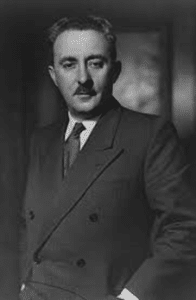
Admitting the removal of the indigenous people of Palestine
From the very first days of Jewish settlement in Palestine, the Zionist leaders clearly stated that they wanted to remove the indigenous people of this country from it. Moshe Sharett, who immigrated with his family from Kherson in the Soviet Union (now Ukraine) to the Palestinian lands in 1906, is one of the main founders of the Zionist movement.
He, who was later elected as the second Prime Minister of Israel, said in 1914 among his Zionist friends: “We have forgotten that we have not come to an uninhabited land to inherit it, but we have come to take possession of a country of people living in it; People who rule this land based on primitive language and culture. “If we want this land, the land of Israel, to belong only to us, but at the same time we allow others to share in this country, all the meaning and concept we defined for our organization will be lost.”
Even before this, in 1899 AD (1278), “Youssef Daya Al-Khaldi”, the then mayor of Jerusalem, who realized that the Zionists were trying to turn Palestine into a Jewish state, wrote a letter to “Theodore Hertzal”, the leader of the 19th century Zionists and emphasized, Palestine has indigenous people who do not easily accept leaving their homeland or moving. He warned about the dangers of this adventure and ended his letter as follows: “In the name of God, give up Palestine.”
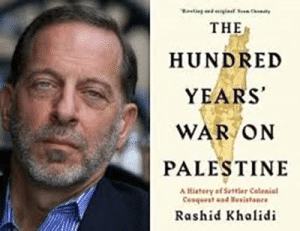
Occupation and usurpation of the land is for the benefit of the people of that country!
“Rashid Khalidi”, one of the descendants of “Shahrdar Al-Khalidi” and a professor of modern Arab studies at Columbia University (in America), writes in his book entitled “One Hundred Years of War for Palestine”, Hertzl responds to Yosef Daya, the Zionist leader assures him that the entry of European Jews into Palestine will improve the standard of living of the native inhabitants of the land because the Jews are “intelligent” and economically very powerful. No one can doubt that the prosperity of a nation will be a welcome outcome,” Hertsal notes.
Rashid Khalidi reminds, Hertsal’s answer was such that it hid the real intentions of the Zionists: With the arrogance and arrogance that was common among the Europeans of the 19th century, Hertsal puts forward a ridiculous motive that the occupation and eventual usurpation of lands by foreigners is for the benefit of the people of that country. It seems that Hertzal’s thoughts were based on the assumption that the Arabs will eventually be bribed or deceived in some way and ignore the real intentions of the Zionist movement for the Palestinian territories.
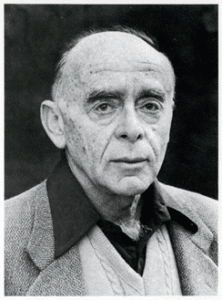
Ernest Pawel mentions in Hertzl’s biography titled “Labyrinth of Exile” that this Zionist leader never performed Jewish religious ceremonies and did not believe in God. In fact, he once claimed that the mass conversion to Christianity on a large scale is the best solution for the Jewish “problem”. He repeatedly humiliated Judaism and wrote in one of his letters: “Just think once about the suffering that the Jewish people have endured in the last 2000 years; The suffering caused by their superstition.”
Powell says, Hertzal has fully and comprehensively understood the Palestinian Arab people (quantitatively, intellectually and ideologically).
Before holding the Second Zionist Congress in 1898, he sent Leo Motzkin, a young Zionist, on a trip to Palestine. Powell writes about Motzkin’s account of this trip: “This report deserves special attention that it did not receive in its time.”
A part of Motzkin’s report states: “A completely accurate statistic on the number of inhabitants is not available at the moment. Of course, I must admit that the population density is not something that makes me very happy as a traveler. Throughout this land, there are large Arab villages and it is quite clear that most of the fertile areas of our country are occupied by Arabs…”
As seen in this report, Motzkin refers to this land as “our country” when it is already inhabited. This explains Hertzl’s subsequent behavior very well. When Herzl personally traveled to Palestine in 1898, he seems to have deliberately and completely ignored the local inhabitants of the land.
Pavel recalls: “On this trip, he passed through at least 10 Arab villages, and in Jaffa itself, Jews constituted only 10 percent of the total population – approximately 3,000 people.” However, in his notes, he does not write anything about the native people of Palestine even once, and in his subsequent statements, he never mentions these people. In ignoring and refusing to acknowledge their presence – and thereby denying their humanity – he has followed and reinforced a trend that has tragic consequences for Jews and Arabs alike.”
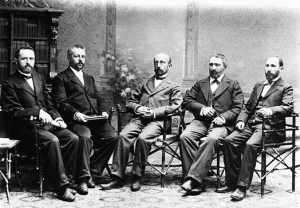
We deserve what will happen to us
Contrary to his Zionist friends who insisted on dreaming about “a land without people for a people without a land”, the Russian Jewish writer and philosopher Ahad Ha’am, from the very beginning, refused to ignore the presence of Arabs in Palestine.
Haam first traveled to the new Jewish settlements in Palestine in 1891. In his article entitled “Truth of the Land of Israel”, he says that it is a crude fantasy to think that Palestine is an uninhabited country. “We tend to accept the belief that today’s Palestine is completely uninhabited and unsettled land, and anyone can travel there and buy as much land as they want, but that is not the case. It is difficult to find a place where the Arabs have not left this land untouched and cultivated.”
The Jewish people were at the heart and soul of Ha’am’s philosophy, and at the end of his life, he condemned any compromise based on political expediency. However, in 1913, in opposition to the boycott of Arab labor by the Jews, Haam wrote in a letter to his friend: “I can’t believe that our brothers have the mental ability to behave like this with other people from other ethnicities, and this thought comes to mind involuntarily: If this is the case now, what will our relations with others be like later, if we finally really come to power in the land of Israel? And if it heralds the coming of Christ, I have no desire to witness it.”
In 1923, Albert Einstein traveled to Palestine. He believed that Jewish immigrants should be kind to their Arab neighbors, and on November 25, 1929, he wrote to Haim Weizmann: “If we can’t find a way to work honestly and make honest deals with the Arabs, then we certainly haven’t learned anything from 2,000 years of suffering and we deserve what’s coming to us.”
Later, in January 1946, Einstein was present at the Anglo-American Embassy Committee, he was asked whether the settler settlements in Palestine needed a Jewish state or not. He replied: “The idea of forming a government is not acceptable in my opinion. I cannot understand why such a thing is necessary. This is short-sighted and brings economic problems. “I think it’s a bad idea and I’ve always been against it.” He believed that the concept of forming a Jewish commonwealth entity is actually “an imitation of Europe, which was finally ended by nationalism.”
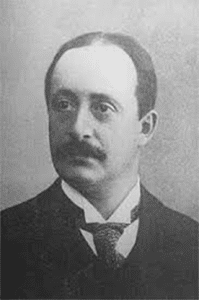
Zionism will lead to disaster
A small number of relatively sensitive Zionists tried to initiate a policy of reconciliation with the Arab residents of Palestine. In 1925, under the leadership of Arthur Ruppin, an association called Brit Shalom (Covenant of Peace) was established in Palestine and proposed dual nationalism as a suitable solution to the conflict between Zionists and Arabs; A conflict between two groups who claimed to own a single land.
In their treaty, which was published in Jerusalem in 1927, the peace treaty said, it intends to establish in Palestine “a two-nation state in which these two nations will have completely equal rights and both parts are involved in determining the country’s destiny, regardless of which part at any point in time, in terms of population to be superior.”
Among the speakers of this association, we can mention well-known figures such as Judah Magnes, the chairman of the board of trustees and the first president of the Hebrew University; Also, people like Martin Buber, Hugo Bergmann, Ernest Simon, and Gershom Scholem are faculty members of this university who were also members of the aforementioned association.
Arthur Rupin, the leader of the Peace Pact, was troubled by the conflict between universal moral values and exclusive Jewish nationalism. he writes: “What worries me constantly is the relationship between Jews and Arabs in Palestine… these two nations are more distant from each other in their thinking and are strangers to each other. None of them understands the other, and yet I have no doubt that if we do not succeed in finding a common ground, Zionism will lead to disaster.”
He claims that what the Zionists are doing is “unprecedented in history. The goal is for Jews to enter as a second nation into a country where they were previously a nation, and to do so through peaceful means. Throughout history, when a nation enters a foreign land, it dominates it only through occupation, but it has never happened that a nation completely agrees with another nation entering their land and demands equal rights and national independence alongside them.
As evident in these words, Rupin also knew that the Zionist wanted something that was not only unprecedented but also impossible. Today’s version of the two-state solution called “two states” has been proposed by a section of American Zionists, which has never been agreed upon by the Palestinians and even by some of the Zionists themselves in the occupied territories. Ignoring the Palestinian people is not a new issue and it has its roots in the thoughts and actions of the first founders of Zionism, and its cornerstone was laid in the project of oppressing Zionists in search of a homeland.

